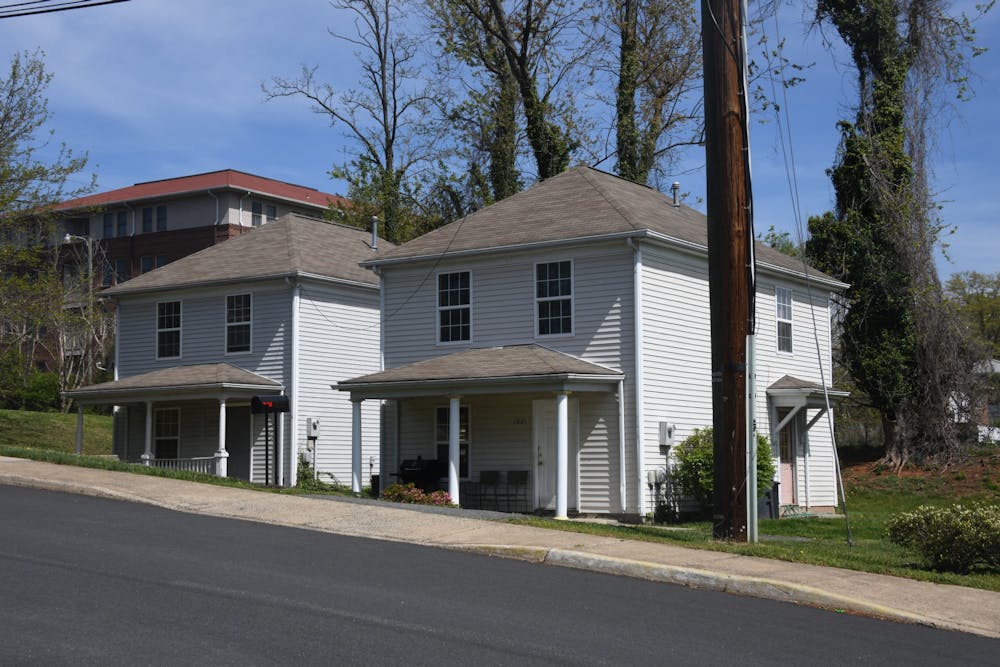A proffer is a sum of money paid by developers to a respective county and is used to fund public projects — like roads, schools and parks — to offset the addition of new residences to an area. Proffers in Albemarle do not accomplish enough to provide or protect their local residents. Problems with proffer collection and use in our locale involve Virginia’s vague legal language that does not clearly define an unreasonable proffer, the poor ratio of proffers paid to actualized damages in Albemarle and the financial irresponsibility of Albemarle’s Board of Supervisors in the spending of proffers.
Virginia’s hesitancy to give a definition to the term unreasonable proffer is a legal nightmare. The vague Virginia legislation defines that onsite proffers within the new development’s boundaries — like roads and affordable housing — must address an impact that is caused by new residential development. On the other hand, offsite non-residential proffers — like schools and libraries — are implemented outside the development’s boundaries if the new residential development creates a need. So, proffer payment is vaguely dependent on a subjective quality of impact or need heightened by new residential developments.
Undefined impact or need can lead to a lot of unintended consequences. On this note, proffers in Albemarle fund affordable housing projects. A scary claim that developers can make under current legislation is that affordable housing is not a true need that is heightened by their new development. Surprisingly though, from 2020 to 2021, Albemarle did lend a portion of proffers to affordable housing — around 28 percent worth. Yet, their efforts were slighted due to lack of buyer protection. Half of all proffered homes designed for low-income earners in Albemarle have been bought by higher-income earners, despite giving these homes a longer buy period. Even if problematic legal language can be circumvented and proffers can be attained, mismanagement has led to low-income earners facing loss at the hands of home-seeking, high-income earners.
Secondly, proffers paid by developers in Albemarle are not enough to offset the damages of new developments. Proffer payments in 2007 Albemarle were around $17,000 per single-family detached home and $12,000 per multi-family dwelling. As of 2015, the price of a single-family detached home was $20,987, while a multifamily was $14,871. Note — this proffer policy operates on an inflation escalator — meaning the payment actually does not rise in real dollars. New developments within already developed areas encompass higher-density housing which entails more steel, concrete and elevators that drive up construction cost per square foot more than a single-family dwelling. This taken into account, an inflation escalator is not enough to recognize these compounding damages by simply covering the cost of inflation.
Land prices skyrocket with infilling practices, especially when an area is zoned disproportionately. Albemarle is zoned 95 percent rural and 5 percent urban. This overutilization of land regulation has disproportionately hurt renters. According to Charlottesville Low-Income Housing Coalition — from 2000 to 2019 — while average rent rose to 92 percent for the area, the White median household income rose 105 percent. In the interim, Black median household income did not follow suit with rent hikes and rose a disparate 43 percent. This outcome of inequality over the decade is concerning. Albemarle’s BOS should demand an increase in proffer payment per housing unit or dissipate the urban growth boundaries. I will note higher proffer payment may deter development. Yet, deterrence would certainly aid renters whose rent is compounded by new residencies and could prevent minority displacement. The right to develop should be given only if a proportional proffer is paid to the county that matches the damages caused by the addition of new residences.
Finally, the financial irresponsibility of Albemarles Board of Supervisors in regards to proffer spending must be remedied. From 2020 to 2021, Albemarle spent $1,836,942 in proffers. The breakdown of Albemarle’s proffers was spent 6.8 percent on roads and transport, 21.5 percent spent on schools, 27.9 percent spent on affordable housing and 43.8 percent on parks, recreation and open space. It should be noted, Albemarle has not built a new school since 2002. In 2022, Albemarle County Public Schools made a statement saying overcrowding is overly prevalent within its schools. Currently, there are two elementary school projects — of which only one has enough funds to be completed within five years. Albemarle needs to reassess its distribution of proffer spending. Albemarle County has 11 parks and is ranked 19th out of 133 counties in parks per square mile in Virginia, and parks across America are struggling with the price of undeniable upkeep. Albemarle should prioritize redistribution of spending from parks and open space to provide an education to its residents through adequate schools.
In sum, proffer collection and use in Albemarle and Virginia has much potential to better serve the constituents for which the system was designed to operate. First, Virginia should make it saliently clear what requests fall under an unreasonable or reasonable proffer. This will expedite BOS and developer negotiations. Second, an inflation escalated proffer paid per housing unit is not sufficient to offset the damages infill development induce. The BOS should either increase proffer payment per housing unit or cease urban growth boundaries to offset internalized damages. Finally, Albemarle needs to revisit a prioritization of local services like schools over its park and open space upkeep. Albemarle residents deserve an environment where local services match them and their residencies.
Rylan Dawson is an Opinion Writer for The Cavalier Daily. He can be reached at opinion@cavalierdaily.com.
The opinions expressed in this column are not necessarily those of The Cavalier Daily. Columns represent the views of the authors alone.







